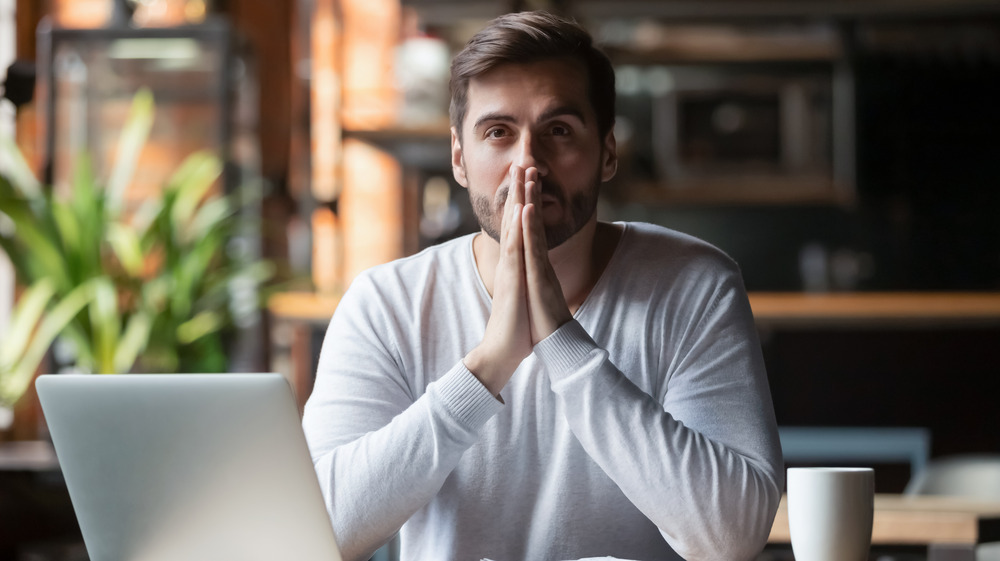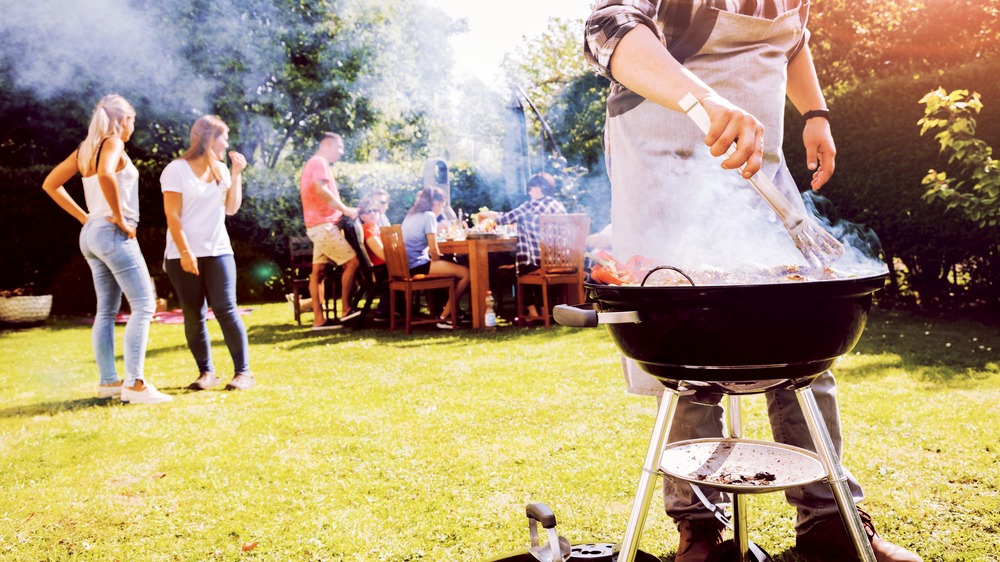Why A Return To 'Normal' Life May Be Giving You Anxiety
During the past year, the pandemic has forced many to adjust to a new way of living. Having to adapt to the many changes through the year has not been an easy feat, and because of these changes, we have seen an increase in anxiety and depression. The pandemic created a dramatic decrease in socialization — with in person education and work experiences replaced by on-line learning and Zoom meetings, and most social events having been canceled or rescheduled. Many have become familiar with this way of living, but as we get closer to returning to our previously "normal" lifestyles, anxiety of another adjustment is looming.
Psychologist at NYU Langone Health, Paraskevi Noulas, PsyD, tells Healthline, "Our ability to adjust is a double-edged sword because now that we're used to isolating so much, it's going to be yet another transition to engage with others socially in person again, both indoors and outdoors." Experts agree that after living through a lengthy time of turmoil and uncertainty, it's natural to become more anxious and even feel socially awkward. Additionally, there is still worry over COVID-19 and returning to a more social lifestyle can heighten that concern. Leslie Adams, LCPC, CADC, case therapist at Northwestern Medicine Central DuPage Hospital tells Healthline, "Being outside our bubble will feel overwhelming because it is a drastic change."
Support for social anxiety
Dr. Noulas suggests the best way to work through social anxiety is exposure therapy, stating, "The more we expose ourselves to a situation, the more our mind and body adjusts to it. We do this in a safe way, gradually, with support if needed from others, and we use deep breathing and relaxation techniques to help people successfully complete each exposure." Experts say starting slowly, with short periods of exposure time, and within small groups, is a good start. Being kind to yourself is also important, Adams tells Healthline, stating, "Keep your expectations low, and be gentle on yourself and others."
Psychologist Dr. Ellen Hendriksen tells The New York Times that when in an anxiety-induced social situation, it can help to shift the focus off of yourself and onto another person. This can assist with alleviating some of the social stress and even help to create bonds with others. However, if you find yourself struggling to get over the hurdle, there are therapists and doctors trained in this area that can help.
Dr. Noulas gently reminds us, "It's been an incredibly difficult year for everyone. We're all in the same boat, learning to navigate this new world, so we'll all benefit from a bit of friendliness as we learn how to crawl, walk, and run again."


